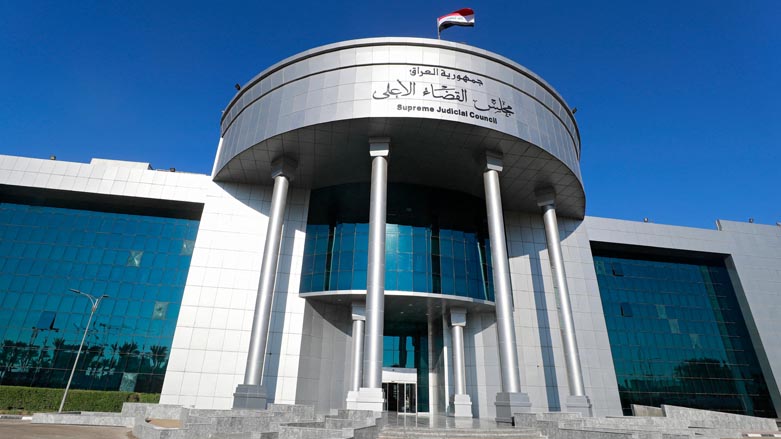Iraqi Federal court suspends parliament leaders amid lawsuits

ERBIL (Kurdistan 24) – Iraq's Federal Supreme Court has suspended the parliament's speaker and his two deputies after two lawsuits were filed claiming the session that saw the officials elected was in breach of the constitution and parliamentary procedure.
Independent lawmakers Basim Khashan and Mahmood Yassen are behind the suit, alleging procedural violations during the inaugural Jan. 09 parliamentary session during which members of the legislature elected the body's speaker and his two deputies.
Related Article: Mohamed al-Halbousi re-elected as speaker of Iraq's parliament
The session was marred by verbal confrontations among various lawmakers, with the eldest member, who is constitutionally mandated to chair the first session, needing medical treatment at a nearby healthcare facility.
Hours later, as tensions died down, 41-year-old Mohamed al-Halbousi, the Sunni Taqadum (Progress) party leader, was re-elected as parliament speaker for a second consecutive term. Sadrist Movement member Hakim al-Zamili was voted the first deputy speaker and Kurdish lawmaker Shakhwan Abdullah as the second deputy.
Later, an alliance of pro-Iran parties named the Coordination Framework stated they do not recognize the outcome of the inaugural parliamentary session. Tehran-aligned movements did not fare well in Iraq's October election and have been alleging fraud since results were announced.
The Coordination Framework includes the Fatah Alliance, a coalition representing the Iranian-backed members of Popular Mobilization Forces (PMF), which won only 17 seats in the 329-seat legislature compared to 48 in the last election. It also includes the State of Law coalition, headed by former Prime Minister Nuri al-Maliki, who won 33 seats.
Self-styled nationalist cleric Muqtada al-Sadr, whose Sadrist Movement was the biggest winner in the vote, seems insistent on pressing ahead to form a government without the Coordination Framework parties.
